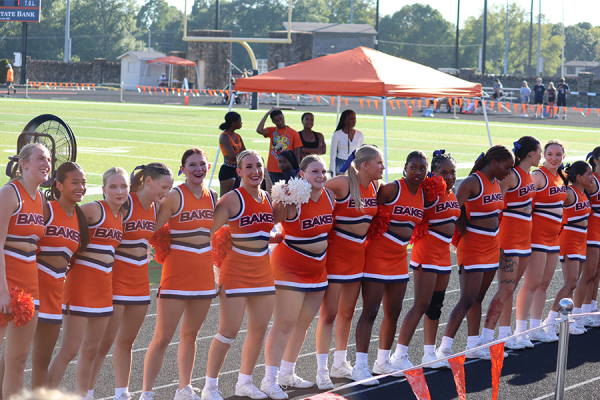Editorial: It is time to end unpaid internships
Unpaid internships no longer serve students due to financial stress and lack of labor appreciation.
As the fall semester comes to a close, the search for internships for the upcoming year is in full swing. Many Baker students participate in short and long-term internships year-round as several academic programs require an internship experience to graduate.
Long praised for their ability to provide students with real-world experience, internships have been growing in commonality each decade since the 1970s. The increasing need for professional development opportunities has come at a great cost to students around the country. We have normalized unpaid internships under the narrative that trading our labor for free is necessary in attracting attention from future employers.
Over the years, legislation has upheld the legality of unpaid internships on a national level. The Fair Labor Standards Act states that employees are required to be paid for their work, though through legal loopholes, these interns are not considered employees by the organizations. If the employer can establish that the intern providing the work is benefiting more than the employer, then the legality indicates there is no need for the intern to receive payment. This ruling dictates that students are “not entitled to minimum wage or overtime pay” if they are not true employees and specifies that they are not entitled to a paid position after their experience is over.
Recent research from the National Association of Colleges and Employers shows that over 40% of interns go without pay. The exchange of free labor for the sake of opportunity costs students time and energy that could otherwise be spent in the workforce earning a paid wage. Not only do unpaid internships exploit populations that are particularly vulnerable to financial instability, but they also perpetuate existing socioeconomic disparities.
Internships widen the gap between students who have financial support to work for free and those who do not. Students who are able to sacrifice their time continue to climb ahead of those who cannot afford to work without pay. It’s not easy to pay the ever-increasing cost of college tuition that has jumped over 1,200% since the 1980s on the salary of a volunteer.
In a time when the cost of living continues to increase and wages continue to stagnate, financial independence becomes increasingly out of reach for young adults and college-aged students. It is predatory for for-profit corporations to deny interns compensation for the work they contribute by justifying it with the benefit of experience. Post-graduation, internship experience means nothing when you’re forced to settle for a job that pays the bills.
With the ongoing course of the COVID-19 pandemic, now is especially not the time to be idealizing unpaid labor. The so-called “labor shortage” has forced the nation to reconsider the way we work and live. Employers have become increasingly desperate for new hires while employees are demanding better conditions, salaries, benefits and work-life balance. We’ve come to realize that expecting prospective employees to volunteer their time for organizations that generate revenue is neither admirable or acceptable.
For some, unpaid internships are the only option available for degree completion. At Baker, some internships may actually cost the student tuition money or travel costs in order to gain the necessary experience for graduation. As the work culture continues to adapt to the upcoming generations, it’s important to keep in mind these changes require social support and the stigmatization of exploitative practices. Unpaid internships do not provide an equitable opportunity for all students nor are its operations justifiable.
Though finding paid internships may be difficult or impossible depending on your program, there is growing popularity among micro-internships which are accessible online via websites like Parker Dewey. Interning is real work and is necessary for the stability of organizations. Fight for proper compensation because it is truly a matter of time before unpaid internships are a thing of the past.

Emma Howard is a senior and a public health major from Lawrence, Kan. She designs graphics and serves as the social media editor for The Baker Orange....

Rebekah Nelson is a senior from Newton, Kans, majoring in mass media and minoring in studio art. She works as the multimedia editor for The Baker Orange...















